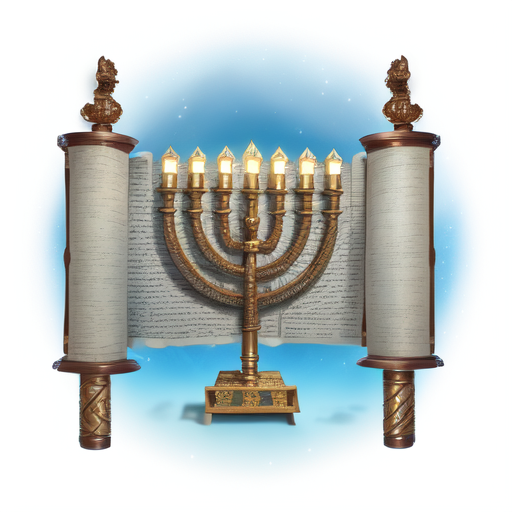Focus verse:
Colossians 2:14 (CJB)
14 He wiped away the bill of charges against us. Because of the regulations, it stood as a testimony against us; but he removed it by nailing it to the execution-stake.
The Real Questions
I want to address another common objection made by most Christians: the law being nailed to the cross. This statement is taken from Colossians 2:14. Unfortunately, many take this verse to mean that the Torah itself was nailed to the cross rather than our transgressions. This verse has become a significant cornerstone in their fallacious argument that Christians are not required to keep G-d’s “harsh” and “legalistic” law.
Does Colossians 2:14 do away with G-d’s law? What is “the bill of charges”? What was “nailed . . . to the cross”? Let’s carefully examine this scripture to see what Sha’ul is honestly saying. First and foremost, note the context. In verses 11-13, Paul explains what Messiah did for us and how those who have believed in him are now spiritually circumcised.
The Former State
Colossians 2:11–13 (CJB)
11 Also it was in union with him that you were circumcised with a circumcision not done by human hands, but accomplished by stripping away the old nature’s control over the body. In this circumcision done by the Messiah, 12 you were buried along with him by being immersed; and in union with him, you were also raised up along with him by God’s faithfulness that worked when he raised Yeshua from the dead. 13 You were dead because of your sins, that is, because of your “foreskin,” your old nature. But God made you alive along with the Messiah by forgiving you all your sins.
Gentile believers were circumcised spiritually, not physically, since it was a circumcision done by the Messiah, the believer’s spiritual mohel. Using graphic language, Sha’ul explains, through vivid imagery, that this spiritual circumcision consisted in the Messiah’s stripping away the spiritual foreskin, which is a metaphor for the old nature’s control over the body. This is a person’s sins and old nature. Here we see that the subject under discussion is the means of justification.
Stern provides the following explanation “The believer’s body will be “stripped away”—it will die; but because he is united with the Messiah, it will be replaced by a spiritual body like Yeshua’s”[1] Before this spiritual “circumcision,” they were dead. Sha’ul uses the same language in Ephesians 2:1-3 and Romans 6:2. G-d’s faithfulness worked when he raised Yeshua from the dead. Sha’ul expresses how certain he is that G-d, in his faithfulness, will fulfill his promise to resurrect believers.
When we repent and are baptized, the “old nature” of sin is buried, and our sins are completely forgiven through our faith in the sacrifice of the Messiah. This is spiritually accomplished. This doesn’t state or imply that a believer’s old nature no longer has any influence over them but that they have been given the tools to rule over it.
Fill The Bill
So, the next question is, what is the “bill of charges”? The first part of verse 14 continues the sentence begun at the end of verse 13. Sha’ul continues to explain how our justification was accomplished. These words are translated from the Greek phrase cheirographon, which in the literal sense means “a handwriting, what one has written by his own hand…a note of hand or writing in which one acknowledges a debt that is, to be returned at the appointed time”[2]
That exact phrase also has a symbolic meaning to the Torah: “shews men to be chargeable with offenses for which they must pay the penalty.”[3] What Sha’ul is saying is that, by his death, Messiah has erased the note of guilt, charges, or debt that we owe because of our sins. The very transgressions that resulted from our past way of life. Before repentance, our lives had been governed by the standards and values of this present, evil nature.
Now that we have repented, we have embarked on a new way of life and are living by G-d’s standards and values. Consequently, G-d has wiped out the debt we acquired. Another means of ascertaining what “bill of charges” means is to notice that it restates the phrase immediately before it. “Having wiped away” parallels “forgiving you all your sins,” which makes it clear that Sha’ul is not referring to the Torah itself but rather to the record of our transgression of the Torah!
Nailed It
So, what exactly was nailed to the cross? Note the last sentence in verse 14. In this sentence, the word “it” is a pronoun and refers to the singular term “bill” or “handwriting.” So, in other words, handwriting such as a note, a record, or a citation was fastened to the cross. Historically, only two objects were nailed to the stake of execution, the first being the condemned person and the second an inscription naming the crimes for which they were being punished. We see this example with the sign above Yeshua’s head.
Usually, the inscription would be more accusatory, saying something like, “This is Yeshua, King of the Jews, who is guilty of sedition.” However, the complimentary inscription replaced the customary note or “bill of charges” that would have been found nailed to the stakes of the two thieves that were executed along with him. Just before He died, our transgressions were symbolically nailed to the cross in his body when the Father deserted him.
Kefa confirms this in I Kefa 2:24, “24 He himself bore our sins in his body on the stake, so that we might die to sins and live for righteousness—by his wounds you were healed.[4]Also, in 2nd Corinthians 5:21, Sha’ul teaches us that “God made this sinless man be a sin offering on our behalf, so that in union with him we might fully share in God’s righteousness.”[5] Our “bill of charges” that we owed G-d as a result of our transgression is what was “wiped away” and “nailed . . . to the cross.”
No, it was not the Torah that was nailed to the cross. The Torah is not against us or contrary to us but is a great blessing to us. Psalm 19:12(11) affirms this, “Through them your servant is warned; in obeying them there is great reward.”[6] Sha’ul’s description of the law in Romans 7:12 goes even further: “So the Torah is holy; that is, the commandment is holy, just and good”[7]
We now see that, far from doing away with the Torah, Colossians 2:14 explains a deep and profound truth. Sha’ul describes how we are counted righteous in G-d’s sight through faith in the sacrifice of Yeshua. Our Savior paid in his own body the debt due to G-d because we transgressed his holy and righteous Torah. Now our debt has been “wiped away” and “nailed . . . to the cross.” Having risen from the dead, we now have the promise of eternal life as we live a new life of righteousness and service to Elohim!
[1] David H. Stern, Jewish New Testament Commentary: A Companion Volume to the Jewish New Testament (Clarksville, MD: Jewish New Testament Publications, 1999).
[2] Joseph H. Thayer, Thayer’s Greek English Lexicon (Hendrickson Publishers, 2007), STRONGS G5498.
[3] ibid
[4] David H. Stern, Complete Jewish Bible: An English Version of The Tanakh (Old Testament) and B’rit Hadashah (New Testament) (Clarksville, MD: Messianic Jewish Publishers & Resources, 2017).
[5] ibid
[6] ibid
[7] ibid

